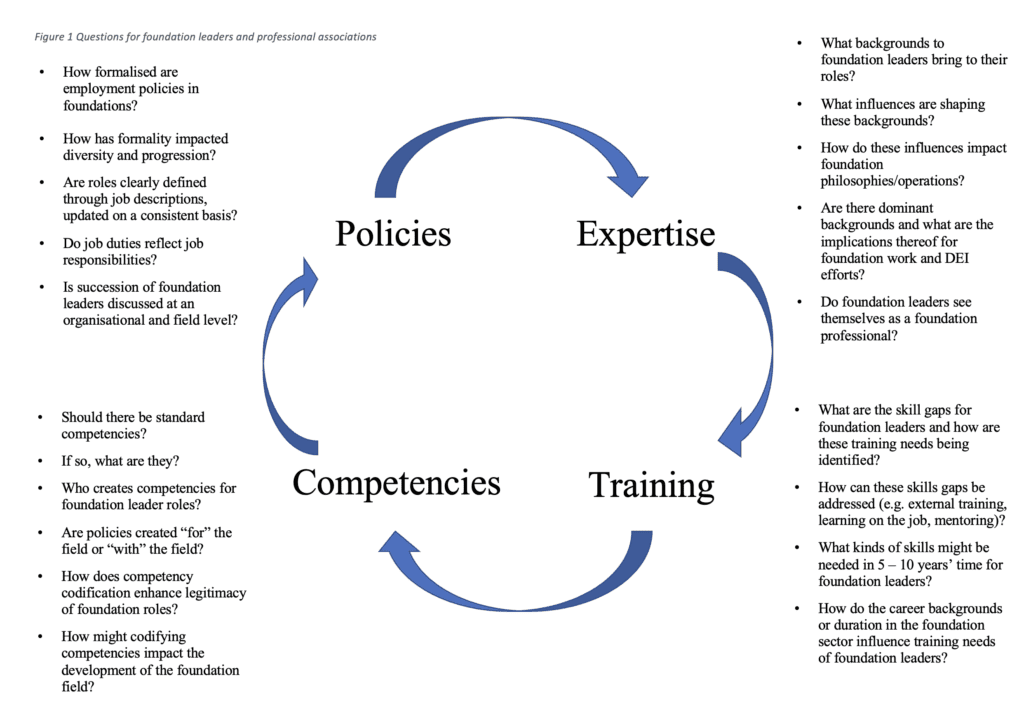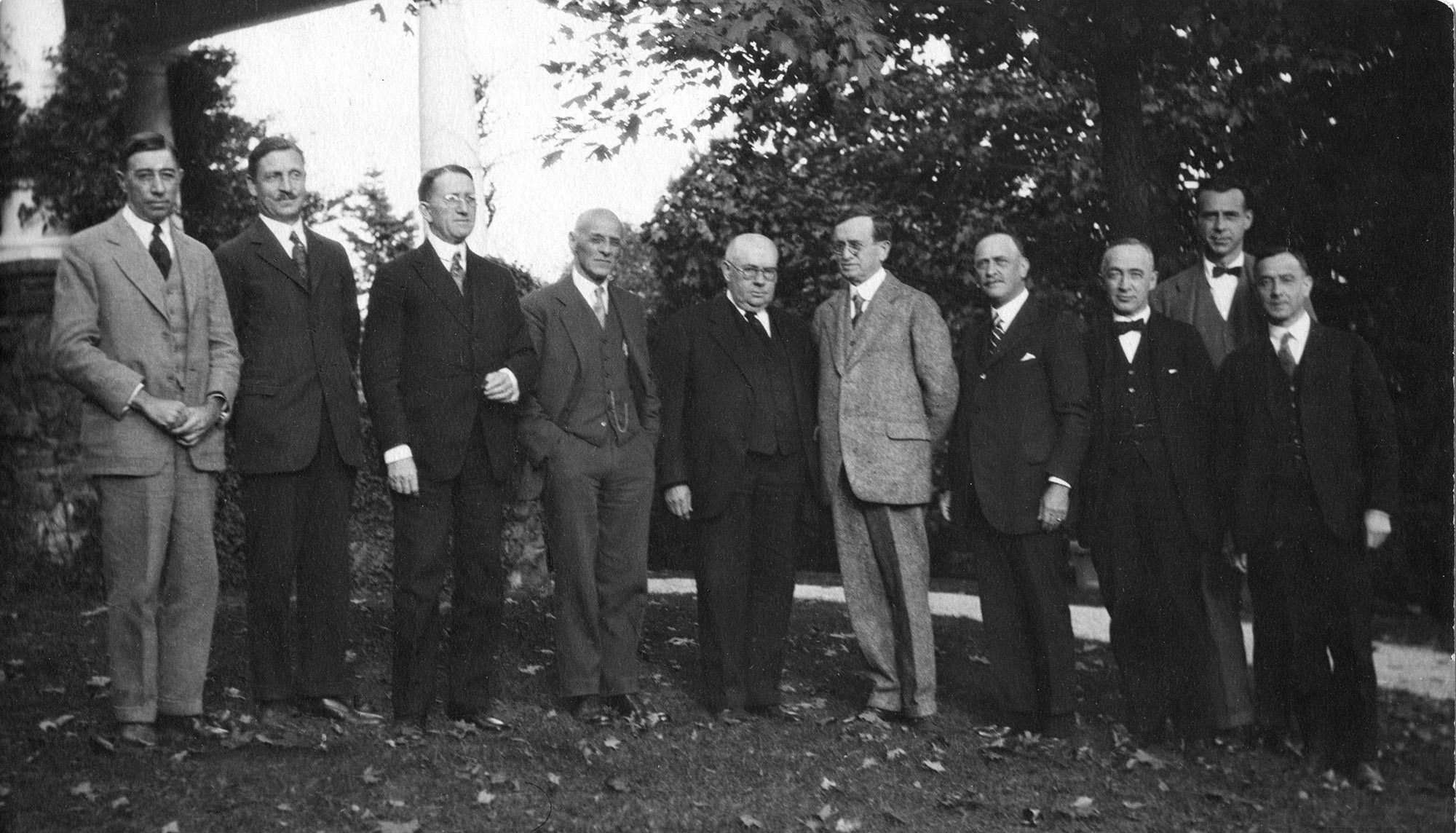From Philanthropoid to Foundation Professional: Reflecting on a Century of Staff Role Development in U.S. Private Foundations
by Michele Fugiel-Gartner
What do we know about foundation staff roles, and how have they changed over time? Using literature on foundation staff roles in the US from the 20th century, my colleagues, Tobias Jung, Alina Baluch, and I explored these issues in our new article, published in The Foundation Review.
Exploring foundation staff and their impact on foundation work remains an emerging research area. In this paper, we demonstrate a shift from the early 20th century concept of the ‘philanthropoid’, to an emerging role, with greater formalisation, called ‘the foundation professional’. The work draws on a doctoral study conceptualising the foundation professional and exploring the experiences of CEOs in U.K. family foundations.
While scholarship on foundations has tended to focus on the organisational level, looking at the internal dynamics provides essential insights into how foundations are managed and led. In a seminal work on the foundation administrator, Zurcher and Dunstan (1972:1) highlighted that “knowledge about the managers of an enterprise is key to understanding the enterprise itself.” Through a greater understanding of the individuals within foundations, some of the mystery of the world of foundation work is removed. In this regard, we identify, map, and synthesise four research periods, demonstrating how foundation staff roles have evolved in line with specific philanthropic events (foundation incorporation, regulation, and field-level development). These are:
- Introducing the Philanthropoids (1925-1950)
- Appointment of Operational Administrators (1950-1975)
- The Rise of Organisational Managers (1975-2000)
- Codifying Foundation Professional Competencies (2000-2022)
| Introducing the Philanthropoid | Appointment of operational administrators | The rise of organizational managers | Codifying foundation professional competencies |
| 1925-1950 | 1950-1975 | 1975-2000 | 2000-2022 |
| Increasing foundation incorporations and regulatory actions. The hiring of staff provided the opportunity for thinking about the development of philanthropic foundations. Foundation leaders’ viewpoints gave first insights into foundation operations. Growing focus on foundation missions and external stakeholders’ interest. | Changing tax and regulatory environment, particularly the 1969 US Tax Reform Act (TRA), impacted the operations of private foundations. The incorporation of more foundations and the hiring of staff created opportunities for newly formed professional associations. Research began to critically assess the work and legitimacy of foundations, leading to interest their operations and spotlighting foundation leaders empirically for the first time. | Foundation managers represented a change from operational administrators to organizational managers. The new term reflected the consequences of increased and continuous hiring as part of the 1969 TRA. Foundation managers were considered influencers in professionalizing foundation operations and for their power vis-a-vis founders and the board of directors. | Increase of field-level developments, such as higher education, media and associations. Legitimacy seeking by professional associations and members to more clearly describe the roles. Functional application of the term “foundation professional” describes elements of foundation leader roles. |
Across these four periods, we see a trend were earlier, amateur, traditions – including limited staff roles, lack of specific training, and absence of formal policies – have shifted into emerging professional influences, such as previous professional experience and the growing importance of professional competencies. Notably, the paper reflects the continued presence of amateur traditions and emerging professional influences within foundation staff roles, which are distinctive features of these roles.
The literature reflects that scholarship on individual professional roles within foundations has been limited, and is often found in grey literature sources. This positionality demonstrates that the field has frequently been the site from where the exploration of roles has occurred. Additionally, there has been a shift within the literature informing how these roles are understood: from personal reflections of foundation staff to empirical studies and, most recently, from professional associations. Data sources on foundation staff are also limited, mostly emanating from professional association employment data.
The paper concludes by asking about the future of foundation staff roles. In the current context of decolonization, trust-based philanthropy, next-generation giving, and new giving tools, there is an opportunity to be proactive in crafting the foundation staff roles of tomorrow. To this end, the paper presents four areas of inquiry for foundation staff reflection: expertise, training, competencies, and policies. These areas of inquiry raise specific questions, including the formalisation of policies within foundations, the backgrounds of foundation staff, the standardisation of competencies, and the needed skills and training for foundation staff.

The inquiry does not advocate for a shift towards greater professionalisation; instead, it prompts a discussion of the future development of foundation staff roles while paying attention to the inherent complexity between amateur traditions and emerging professional influences.
Taken together, the paper contributes a new synthesis of foundation staff role development and reorients the individual in foundation literature. While the paper reflects the US context, due to literature availability, other jurisdictions may find the approach helpful for a better understanding of foundation staff roles, their development, and their influence upon foundation work.
The full paper is Fugiel Gartner, M., Jung, T., & Baluch, A. (2023). From Philanthropoid to Foundation Professional: Reflecting on a Century of Staff Role Development in U.S. Private Foundations. The Foundation Review, 15(2), and is available online at https://doi.org/10.9707/1944-5660.1655
Featured Image: Rockefeller Foundation 1920s General Education Board (GEB) Officers; Rockefeller Foundation records photographs. FA003. Series 100-1000. Series 100 International.Portraits. Portraits – Groups – General Education Board. Box 16. Folder 503. RF photo #25387. Rockefeller Archives Centre: https://resource.rockarch.org/geb-officers/
